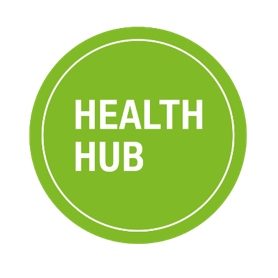CAFFEINE – THE GOOD, THE BAD, THE TRUTH!
Health experts are often asked about caffeine. Is caffeine good for you? Bad for you? Should you drink coffee / tea? Recently, a Scientific Advisory Board met to discuss the latest scientific literature on coffee and tea.
THE GOOD:
The scientific evidence suggests the following (for caffeinated beverages like coffee and tea – NOT energy drinks):
- Coffee has some health benefits. Research indicates that coffee drinkers may be less likely to be hospitalized for heart rhythm disturbances but coffee consumption has also been linked to decreased risk of Parkinson’s Disease and Type 2 diabetes. Coffee, both caffeinated and decaffeinated, does contain ingredients that may raise LDL cholesterol, but brewing coffee with paper filters tends to reduce this cholesterol-raising effect.
- Black Tea, Green Coffee and Green Tea, caffeinated as well as decaffeinated, contain ingredients that have many health benefits, such as reduced risk of cancer, cardiovascular disease, osteoporosis, and gum disease.
- In Japan, researchers have shown that caffeine consumption increases memory. Also, a study out of Johns Hopkins University, showed that a 200mg caffeine pill helped boost memory consolidation and can help with Alzheimer’s Disease.
- Caffeine mixed with carbs replenishes muscle glycogen concentrations faster after exercise.
- Caffeine relieves post-workout muscle pain by up to 48%.
- Caffeine increases stamina during exercise.
- Caffeine is shown to reduce liver fibrosis risk in patients with hepatitis C. As little as 100 mg per day is believed to have protective benefits.
- Caffeine helps those with asthma. A study published in the U.S. National Library of Medicine concluded that caffeine seems to open airways and help asthmatics breathe easier. This is like theophylline – a drug currently used and one that’s a close cousin to caffeine.
- Caffeine may prevent weight gain: Research in Germany showed that weight loss study participants who drank 2-4 cups of caffeinated coffee a day were more likely to be successful at keeping the weight off than those who did not consume caffeine.
- Caffeine reduces chronic inflammation. Researchers from Stanford University found that caffeine blocks the expression of a gene responsible for low-grade chronic inflammation as we age. This inflammation eventually leads to high blood pressure, hardening of the arteries, and heart disease. Caffeine seems to help reduce this age-related inflammation in those that are regular consumers of the drug.
- Caffeine is good for the heart. Another study found that the amount of caffeine typically in 4 cups of coffee daily helps strengthen heart muscle cell function and prolongs the life of heart muscle cells.
THE BAD:
- Caffeine consumption may raise blood pressure. Especially in those already suffering from hypertension and those who don’t normally consume caffeine. People with hypertension were given 250 mg of caffeine (about 2 coffees) and the data revealed that their blood pressure was elevated for about 2-3 hours after the caffeine.
- Caffeine may cause insomnia. Caffeine in a person’s system at bedtime can mimic the symptoms of insomnia.
- Caffeine can cause headaches. While occasional doses of caffeine can relieve headache symptoms, the overuse of caffeine can cause headaches and lead to migraines.
- Caffeine Overdose. While overdose is rare, it can lead to many adverse symptoms including death, especially in those with underlying medical conditions. Some people have a lower tolerance for caffeine than others.
- Caffeine consumption can lead to increased anxiety, depression, and the need for anxiety medication.
- Caffeine does not help with prolonged sleep deprivation: This can lead to a false sense of security for those that have been sleep deprived for multiple days in a row and choose to get behind the wheel or do some other focus required task, thinking that if they have caffeine, they’ll be able to perform.
If you are wondering, if you are having too much caffeine, ask yourself –
- Do I have problems that are linked to or exacerbated with coffee consumption, such as gastrointestinal issues like GERD, panic attacks, sleep troubles, or glaucoma?
- Does drinking coffee trigger the desire for behaviours (like cigarette smoking) that I’m trying to avoid?
- Is coffee such a profound part of my life that it’s getting in the way of healthy habits? For example: Am I “living” on coffee to the point where I’m not eating food, including healthy foods like fruits and vegetables?
- Am I living off the “high” from coffee rather than the much healthier “high” from daily exercise?
- Am I depriving myself of healthful restorative sleep because of all the coffee I’m drinking?
If you answered “yes” to any of the above, we recommend that you cut down on your coffee consumption, or avoid coffee altogether.
If none of the above applies to you, and if you enjoy coffee, keep enjoying it. Remember to:
- Brew your coffee through a paper filter.
- Drink it black or flavoured with non-fat milk, soymilk, and/or a zero-calorie sweetener like Splenda with Fibre
- There is still a big NO to energy drinks…. It’s the caffeine in coffee & tea which provides the positives, NOT in energy drinks.

